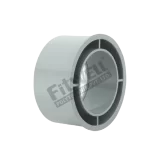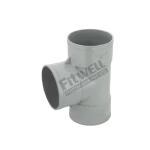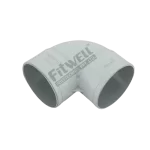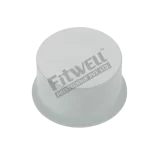Exploring the Versatility of Agricultural Pipes and Fittings in Modern Farming
Introduction
In modern farming, the efficient management of water resources is crucial for healthy crop growth and maximizing yields. Agricultural pipes and fittings play a vital role in various farming techniques, from irrigation to water distribution. Their versatility not only simplifies farming operations but also supports sustainable agriculture practices by promoting optimal water use. This article explores the diverse applications of agricultural pipes and fittings in farming and how they contribute to more sustainable and efficient agricultural practices.
The Role of Agricultural Pipes and Fittings in Farming
Agricultural pipes and fittings are specifically designed to transport water and other fluids efficiently across different areas of a farm. They are an essential part of irrigation systems, water supply networks, drainage solutions, and even hydroponic setups. These pipes are often made from durable materials like PVC, HDPE, or UPVC, ensuring they can withstand harsh outdoor conditions and frequent use.
Key Functions of Agricultural Pipes and Fittings:
- Water Distribution: Delivering water to crops, livestock, and other areas of the farm.
- Irrigation: Enabling various irrigation techniques, including drip and sprinkler systems.
- Drainage: Removing excess water from fields to prevent waterlogging and soil erosion.
- Fertilizer Application: Transporting liquid fertilizers and pesticides to crops for more efficient nutrient delivery.
By facilitating these essential tasks, agricultural pipes and fittings are fundamental to the success of modern farming.
Types of Agricultural Pipes and Fittings
Several types of agricultural pipes and fittings are used in farming, each designed to meet specific needs and conditions:
1. PVC Pipes and Fittings
- Use: Widely used in irrigation systems for water distribution due to their durability, resistance to corrosion, and cost-effectiveness.
- Fittings: Include elbows, tees, reducers, and couplings, allowing farmers to customize irrigation layouts for different crop patterns and field sizes.
2. HDPE (High-Density Polyethylene) Pipes and Fittings
- Use: Ideal for transporting water over long distances and in extreme conditions. HDPE pipes are flexible, impact-resistant, and can handle varying temperatures, making them suitable for use in different climates.
- Fittings: Include compression fittings, electrofusion fittings, and flange adapters, providing leak-proof connections and easy installation.
3. Drip Irrigation Pipes and Fittings
- Use: Essential for drip irrigation systems, where water is delivered directly to the plant roots, minimizing water wastage and promoting efficient water use.
- Fittings: Include emitters, connectors, end caps, and pressure regulators, designed to control water flow and distribution accurately.
These various types of agricultural pipes and fittings allow farmers to choose the most suitable solution for their specific farming techniques and water management needs.
How Agricultural Pipes Support Various Farming Techniques
Agricultural pipes and fittings support a range of modern farming techniques, enhancing water management and promoting crop health.
1. Irrigation Systems
One of the most significant uses of agricultural pipes is in irrigation systems, which are crucial for maintaining consistent moisture levels in the soil. Pipes and fittings are used to set up drip irrigation and sprinkler irrigation systems, allowing farmers to control water delivery efficiently.
- Drip Irrigation: Pipes transport water from the main source to drip lines, where emitters deliver water directly to the plant roots. This method conserves water by minimizing evaporation and runoff, making it ideal for sustainable agriculture.
- Sprinkler Irrigation: Pipes distribute water to sprinklers that spray water over a wide area, simulating natural rainfall. This technique is suitable for crops that require an even water distribution.
2. Hydroponic Farming
In hydroponic systems, where plants are grown without soil, agricultural pipes and fittings are used to deliver nutrient-rich water directly to the plant roots. The pipes facilitate the continuous circulation of water, ensuring that plants receive adequate nutrients and oxygen for optimal growth.
3. Water Drainage Systems
Proper drainage is essential to prevent waterlogging, which can damage crops and soil health. Agricultural pipes and fittings are used to create drainage networks that channel excess water away from fields, promoting healthier plant growth and reducing soil erosion.
4. Fertilizer and Pesticide Application
By integrating pipes and fittings into irrigation systems, farmers can efficiently deliver liquid fertilizers and pesticides to crops. This method ensures an even distribution of nutrients and protects plants from pests, enhancing crop yield and quality.
Manufacturing Process of CPVC Piping Systems
Promoting Sustainable Agriculture with Efficient Irrigation Systems
Sustainable agriculture relies heavily on efficient water management. Agricultural pipes and fittings make it possible to implement irrigation systems that conserve water and reduce environmental impact.
1. Water Conservation
By using agricultural pipes in drip irrigation systems, farmers can minimize water wastage and deliver water directly to the plant roots. This precision watering not only conserves water but also reduces the risk of overwatering, which can lead to root rot and other plant diseases.
2. Reduced Soil Erosion
Properly installed irrigation and drainage pipes help maintain soil structure and prevent erosion. By managing water flow and runoff, farmers can protect the soil’s fertility and ensure long-term agricultural productivity.
3. Efficient Fertilizer Use
Integrating pipes with fertilizer injectors enables farmers to apply nutrients directly to the plant roots. This targeted approach reduces the need for excess fertilizer, minimizing environmental pollution and promoting healthier crop growth.
Tips for Choosing the Right Agricultural Pipes and Fittings
Selecting the appropriate pipes and fittings for your agricultural needs is crucial for building an efficient and sustainable system. Here are some tips to consider:
1. Determine the Type of Irrigation System
Choose pipes and fittings based on the irrigation technique you plan to use, whether it’s drip, sprinkler, or hydroponic. For example, drip irrigation systems require smaller pipes and specialized fittings like emitters and pressure regulators.
2. Consider Durability and Environmental Conditions
Opt for pipes and fittings made from materials that can withstand the farm’s environmental conditions. HDPE pipes are ideal for areas with extreme temperatures, while PVC pipes are suitable for general water distribution needs.
3. Ensure Proper Sizing
Select pipes with the appropriate diameter to handle the required water flow rate. Properly sized fittings are essential for maintaining a leak-free system and ensuring even water distribution across the field.
4. Choose Reputable Brands
Invest in fittings from reputable manufacturers, such as Fitwell, known for producing high-quality agricultural pipes and fittings. Using reliable products reduces the risk of leaks, corrosion, and system failures, ensuring a long-lasting irrigation network.
Conclusion
Agricultural pipes and fittings are indispensable components in modern farming, supporting various techniques such as irrigation, hydroponics, drainage, and fertilizer application. By providing an efficient means of water distribution and management, these pipes play a vital role in promoting sustainable agriculture and optimizing crop yields. Selecting the right type of agricultural pipes and fittings tailored to your farm’s specific needs can significantly enhance your farming operations and contribute to a more sustainable future.
Stay on the forefront of industry trends by checking out our latest content
Stay ahead with our latest content, designed to keep you informed on the newest industry trends and insights. Discover valuable updates that help you lead in your field.

Trusted uPVC Pipes Manufacturers for India’s Top Contractors
Introduction: The Surge in Demand for uPVC Pipes Among Top Contractors in India The construction and infrastructure sectors in India have witnessed a significant transition toward sustainable and long-lasting materials.
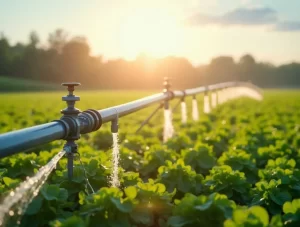
Top Innovations in Agricultural Pipe Fittings for Water Savings [2025]
Introduction to Agricultural Pipe Fittings and Water Sustainability Agricultural pipe fittings play a pivotal role in building efficient irrigation systems, crucial for modern farming practices. By exploring the versatility of

Expeart Tips from MDPE Pipe Fittings Manufacturers to Avoid Failures
Expeart Tips from MDPE Pipe Fittings Manufacturers to Avoid Failures Understanding MDPE Pipe Fittings: An Overview MDPE (Medium Density Polyethylene) fittings, used extensively in gas and water systems, offer strong,
Request a Free Consultation
Get personalized plumbing solutions with a free consultation from Fitwell.

